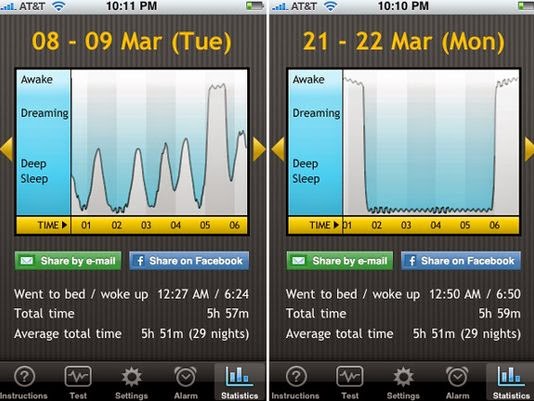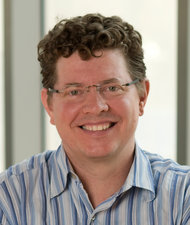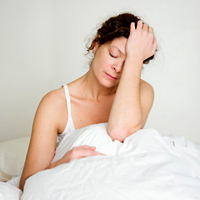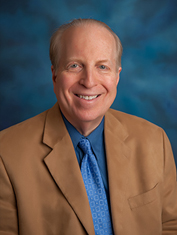A good night’s sleep is a matter of technicality.
Notes from Dr. Norman BlumenstockTechnology can possible help or hinder a good night’s sleep. Technology is a double-edged sword when it comes to sleep. It’s been proven that one should shut off the “screens” — TV, computer, smartphones and beyond — well before hitting the sack, but sometimes, those future-forward devices hold the ticket to getting a good night’s rest. Sleep-related apps IQ ALARM: Wakes people with an IQ test as an alarm; $.99 SLEEP CYCLE ALARM CLOCK: Tracks sleeping habits and quality, and awakens people with soothing tones; $.99 SLEEP: Sends people to sleep with soothing sounds, lullabies and …
Definition of an Effective Oral Appliance for the Treatment of Obstructive Sleep Apnea and Snoring: A Report of the American Academy of Dental Sleep Medicine
Notes from Dr. Norman Blumenstock In response to the demands of an emerging profession to set standards of care, the Board of Directors of the American Academy of Dental Sleep Medicine (AADSM) brought together leaders in the profession to develop the definition of an effective oral appliance for the treatment of sleep disordered breathing based on current research and clinical experience. On February 15-17, 2013, a consensus conference was held in Tampa, Florida. Fifteen leaders in the profession used the modified RAND/UCLA Appropriateness Method to craft an empiric definition of an effective oral appliance with emphasis on purpose, physical features …
Is it just Snoring or is it Sleep Apnea?
From Dr. Norman Blumenstock: Not everyone who snores has sleep apnea, and not everyone who has sleep apnea snores. Posted on December 25, 2013 Not everyone who snores has sleep apnea, and not everyone who has sleep apnea snores. So how do you tell the difference between normal snoring and a more serious case of sleep apnea? The biggest telltale sign is how you feel during the day. Normal snoring doesn’t interfere with the quality of your sleep as much as sleep apnea does, so you’re less likely to suffer from extreme fatigue and sleepiness during the day. Even if you …
Advice About Sleep Deficiency in Midlife, Part 2
By NICOLE HIGGINS DeSMET Published: September 18, 2013 This week’s Ask an Expert features Orfeu Marcello Buxton, a neuroscientist who will answer questions about the causes and health consequences of sleep deficiency, particularly in middle age. He researches chronic sleep deficiency in the workplace and home and how it contributes to disorders like obesity, diabetes and cardiovascular disease. Orfeu Marcello Buxton,neuroscientist andsleep researcher. Dr. Buxton is an associate neuroscientist the Division of Sleep Medicine in the Department of Medicine at Brigham and Women’s Hospital in Boston, as well as an assistant professor at Harvard Medical School and the Harvard School of Public Health. He …
Snoring Is No Laughing Matter
Millions of Americans have obstructive sleep apnea and don’t know it. But the disorder can have serious health consequences. By Dr. Sanjay Gupta If you snore at night and feel drowsy all day, then you may be one of 18 million Americans who have obstructive sleep apnea (OSA). Most people with the sleep disorder don’t know they have it, but left untreated OSA can lead to serious complications. “People with sleep apnea have been shown to be at a higher risk for cardiovascular diseases, particularly hypertension, stroke and diabetes,” said Thomas Roth, MD, director of the Center for Sleep Disorders and Research …
Dr. Norman Blumenstock – Awarded the 2013 Distinguished Service Award by the American Academy of Dental Sleep Medicine
DISTINGUISHED SERVICE AWARD 2013 Norman Blumenstock, DDS Norman T. Blumenstock, DDS, earned his dental degree from Columbia University College of Dental Medicine, after earning his bachelor’s degree from Brooklyn College. Prior to entering private practice, he served a general practice and Medical Center in New York City. He is proud to have earned both Fellowship and Mastership awards from the Academy of General Dentistry. For the past 25 years, he has focused on dental sleep medicine. Since 1991, Dr. Blumenstock has attended the weekly sleep clinic sessions at the medical school where he is currently appointed to the Medical Department …
Medicare Coverage is available for Sleep Apnea Oral Appliance Treatment
Top News New Oral Appliance Coverage Determination Released In late November, the Durable Medical Equipment Medicare Administrative Contractors (DME MACs) released a new local coverage determination for oral appliances. The policy, effective for claims with dates of service on or after January 3, 2011, states that a custom fabricated mandibular advancement oral appliance (E0486) used to treat obstructive sleep apnea is covered if certain criteria are met. “The policy is a great step forward for both patients and providers. Choices in treatment are a must and treatment can now be personalized,” said Steve Moore, VP of sales and marketing for …
Oral Appliances 101
There are many ways to treat sleep apnea. Besides using a CPAP machine or lifestyle change, oral appliances are an excellent option. Oral Appliance therapy is the selection, design, fitting and use of a specially designed oral appliance. When worn during sleep, it maintains an opened, unobstructed airway in the throat. Oral appliances that treat snoring and obstructive sleep apnea are devices worn in the mouth, and are similar to orthodontic retainers or mouth-guards. They have several advantages over other forms of therapy. Oral appliances are comfortable, easy to wear and care for. They are small and convenient, making them …
Dr. Blumenstock and Sleep Apnea
Did you know that Dr. Blumenstock is your dental sleep expert in New Jersey and surrounding areas? He has taken hundreds of hours of postgraduate education, as well as his 20-year plus focus on sleep medicine. He is passionate about what he does and can help improve your overall health. Central Jersey Dental Sleep Medicine cooperates with medical doctors to make sure your individual situation is fully addressed with an objective medical assessment. Dr. Blumenstock and his staff work with physicians and specialists such as neurologists, pulmonologists, and ENT physicians to help with this initial medical assessment. Snoring and obstructive …
Information Behind the CPAP Machine
The most common treatment of sleep apnea is a CPAP machine. CPAP stands for Continuous Positive Air Pressure. It uses a constant flow of air to keep the breathing passages open. A patient wears a mask that receives the airflow from a machine located next to the bed. When used efficiently, the CPAP machine has close to 100% effectiveness for sleep apnea. But, there is a 50% success rate due to patient’s inability to tolerate the machine. Many complain that it is noisy, restricts movement, and causes side effects such as dry throat and raw skin where the mask is …








